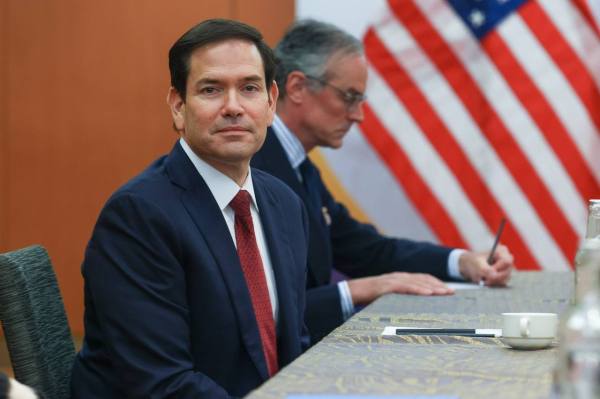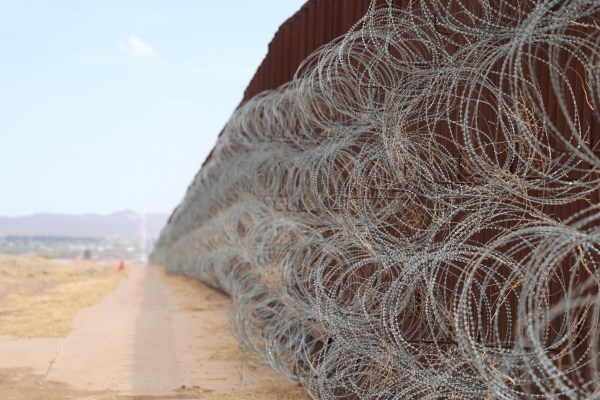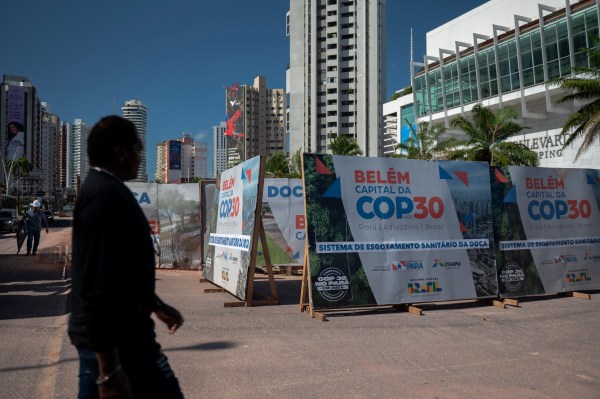El Salvador’s president has finally secured the changes that will enable him to serve in office for life.
By a 57-3 margin, El Salvador’s Legislative Assembly last week approved constitutional amendments eliminating presidential term limits and extending presidential terms to six years while removing runoff election requirements. The changes, which modify five articles of the 1983 constitution, represent the culmination of President Nayib Bukele’s systematic institutional restructuring that began with his 2019 electoral victory and accelerated after his party gained a legislative supermajority in 2021.
Bukele’s consolidation of power comes as the United States is cooperating more closely with El Salvador on security and immigration issues than ever before. In February, Bukele agreed to accept deportees at his now-infamous CECOT prison in exchange for $6 million annually, and a new El Salvador Congressional Caucus was formed last year to further Salvadoran ties in the legislative branch.
Bukele’s controversial role in the Trump administration’s mass deportation push has cemented support for him from many Americans on the right, or at least provided a practical reason not to openly criticize his authoritarian tendencies. While the sympathies some conservatives have for Bukele is understandable, historical precedents from Venezuela and Nicaragua indicate that authoritarian consolidation—regardless of short-term security gains—will likely eventually generate the migratory pressures and anti-U.S. postures Bukele’s defenders seek to avoid.
From military rule to term limits.
Understanding the significance of these constitutional modifications requires examining El Salvador’s post-civil war electoral architecture and the central role that term limits played in preventing authoritarian consolidation. The prohibition on consecutive presidential reelection, originally enshrined in Article 152 of the 1983 Constitution, reflects bitter experience from El Salvador’s history with military rule and the civil conflict that began in 1979 and claimed over 75,000 lives, according to the United Nations-sanctioned Truth Commission of El Salvador.
This constitutional framework successfully facilitated peaceful transitions between ideologically opposing parties in the wake of a peace process. The conservative ARENA party governed from 1989 to 2009, followed by the leftist FMLN from 2009 to 2019. The ruling party’s legitimacy derived partly from the presidency’s five-year single-term structure, which constitutional framers designed to prevent the personalist rule that had characterized El Salvador’s authoritarian past.
In 2014, however, the section of the country’s Supreme Court dedicated to addressing constitutional questions known as the Constitutional Chamber issued a ruling that allowed presidents to seek non-consecutive terms if they sat out two terms while maintaining the core prohibition against consecutive reelection, creating interpretive ambiguity. This precedent established the legal foundation for future reelection debates that Bukele’s allies would later build on.
Bukele’s 2019 election, in which he captured 53 percent of the vote as a minor-party candidate after being expelled from the FMLN, reflected genuine democratic demand for change. His campaign effectively exploited widespread frustration with the failure of both traditional parties to address gang violence, corruption, and economic stagnation.
Consolidating power.
Bukele’s transformation from populist outsider to dominant executive was no accident. He has systematically consolidated control over El Salvador’s institutions during his time in power, drawing from regional precedents while adapting to the nation’s specific legal and political context.
Bukele tackled the judiciary first. In May 2021, following an overwhelming electoral victory for Bukele’s Nuevas Ideas party, the newly installed Legislative Assembly dismissed five Constitutional Chamber justices and the attorney general, citing constitutional provisions requiring two-thirds legislative approval for judicial appointments. While international observers condemned these removals as violations of the constitution, Bukele’s supermajority enabled the changes to proceed through formal legislative processes.
This judicial restructuring immediately produced favorable rulings for Bukele’s political project. In September 2021, the reconstituted Constitutional Chamber issued a decision declaring him eligible for reelection to consecutive terms, arguing that the constitution’s term-limit provision applied only to presidents serving before the 2014 ruling and providing legal cover for his 2024 reelection campaign.
Bukele then expanded his executive authority through emergency powers that have remained in effect for more than 1,000 days. Following a March 2022 weekend in which criminals killed 87 people, Bukele declared a state of emergency, suspending constitutional rights to assembly, legal counsel, and privacy. Extended more than 30 times by the legislature, this regime has enabled the arrests of over 85,000 people.
Criticism from human rights advocates notwithstanding, the policy helped produce dramatic security improvements: The homicide rate in El Salvador has declined from 106.3 per 100,000 people in 2015 to 1.9 in 2024, transforming the country from the world’s most violent to one of the safest in the region. As a result, Bukele, at just 44 years of age, gained many supporters at home and abroad who see his policies as the only antidote to generations of rampant violence and lawlessness.
Echoes of Venezuela and Nicaragua.
El Salvador’s constitutional amendments appear to follow patterns of institutional manipulation previously employed by Hugo Chávez in Venezuela and Daniel Ortega in Nicaragua, leaders who successfully eliminated term limits through judicial reinterpretation followed by formal constitutional modification. The similarities suggest common authoritarian strategies that transcend ideology, though outcomes may vary based on economic conditions and external pressures.
After failing to eliminate term limits through a 2007 referendum, Chávez succeeded in 2009, enabling indefinite rule until his death in 2013. His method also combined court-packing with constitutional referenda that bypassed legislative constraints.
Nicaragua’s trajectory offers perhaps the closest parallel. Ortega used Supreme Court decisions between 2009 and 2014 to circumvent constitutional term limits, employing reasoning about “popular sovereignty” that Bukele’s Constitutional Chamber subsequently adopted. Both leaders captured courts through legislative majorities, secured favorable reelection rulings, and then formalized changes through compliant institutions while defending their actions as democratic.
While Bukele, unlike Chávez and Ortega, is ostensibly right-wing and conditionally pro-U.S., his adoption of their template for power should be a concern given his ties to China and combative attitudes towards the U.S. when he feels his rule is being criticized. Given enough time and the proper incentives, Bukele could very well become an authoritarian populist in the mold of other regional strongmen.
Implications for the U.S.
The July 31 announcement of the electoral changes came as the Biden administration-appointed ambassador to El Salvador, William H. Duncan, planned to resign, leaving no clear spokesperson on the American side to weigh in on their legitimacy and giving the Trump administration an easy way to avoid commenting.
President Donald Trump hasn’t yet named a replacement for Duncan, but the appointment will serve as an early signal of the administration’s thinking on El Salvador’s election reforms, especially since the ambassador will almost certainly be questioned about them during his or her Senate confirmation hearing. While Bukele makes a public show of claiming not to care about being called a dictator, he is clearly sensitive to how he is perceived domestically and internationally and has previously refused to meet with American diplomats who have criticized him.
To further its border security and mass deportation goals, the Trump administration will almost certainly prioritize short-term security cooperation and continue turning a blind eye to the dangers of El Salvador’s election reforms. On one hand, immigration data supports the case for continued partnership: Salvadoran border encounters dropped from 49,959 between February and July 2022 to only 970 between February and July 2025. While border crossings have decreased across the board since Trump was sworn in earlier this year, Salvadorans accounted for only 1 percent of Customs and Border Protection encounters at the southern border in June 2025.
Nevertheless, it would be wise for the Trump administration to begin contingency planning in case migration trends reverse. Authoritarian governance in the region has a poor economic track record because it stifles the private sector and insulates incumbents from electoral rebukes for foolhardy and unpopular economic policies. Bukele’s elimination of runoff elections will allow him to win reelection with a simple plurality of the vote and embolden his worst instincts. If the economy deteriorates or if succession crises emerge as a result, El Salvador could rapidly shift from a solution to the United States’ migration problem to a major source of it.
Bukele’s latest power grab marks a turning point in the history of El Salvador, almost certainly for the worse. However warranted the criticism of Bukele may be, there is now no clear path for reversing these changes. U.S. policymakers should focus on what they can still influence: ensuring that future elections are as fair as possible and preventing El Salvador’s ties to China from becoming any cozier. While the State Department is unlikely to weigh in on the legitimacy of El Salvador’s upcoming 2027 presidential election, U.S. lawmakers can still bring some international attention to it by making it a talking point if clear irregularities emerge.
Bukele has made it this far by delivering tangible victories at home and abroad and presenting his authoritarian tendencies as necessary for pulling El Salvador out of generations of misery. While he will now be able to weather domestic downturns in popularity, international support for his rule is conditioned on his continued policy success. If his results aren’t lasting, U.S. support for him may prove short-lived.










Please note that we at The Dispatch hold ourselves, our work, and our commenters to a higher standard than other places on the internet. We welcome comments that foster genuine debate or discussion—including comments critical of us or our work—but responses that include ad hominem attacks on fellow Dispatch members or are intended to stoke fear and anger may be moderated.
With your membership, you only have the ability to comment on The Morning Dispatch articles. Consider upgrading to join the conversation everywhere.